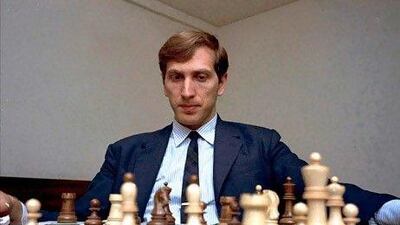First, Formula One arrived in Abu Dhabi, then came the Volvo Ocean Race. Next up, chess.
Soon, UAE chess aficionados may have the opportunity to watch world championship matches live as Andrew Paulson, an American businessman, seeks to bring the game to the Middle East.
And if you think chess lacks the excitement of fast cars and yachts, think again. Mr Paulson's company Agon uses cutting-edge technology to whip up drama for spectators by allowing them to see players' pulse rates and perspiration levels as the tension mounts.
Chess emerged in India and spread to Persia and the Muslim world before reaching Europe during the Renaissance.
In the 1970s and 1980s, matches became almost matters of geopolitics as players from the Soviet Union and the United States battled it out for superiority on the chessboard. Recently, despite there being more than 600 million players worldwide, chess tournaments have been rather lacklustre events.
Since Agon won the rights to host the World Chess Championship for the next 11 years, Mr Paulson said he was aiming to return the game to the "greatest cities in the world", including locations in the Middle East.
"I found that in the Gulf there's certainly great interest - in the Emirates and Qatar," Mr Paulson said. "I know from my visits to the Emirates that [chess is] incredibly important for national prestige for educational purposes. That's why I'll be coming back in November or December to try and settle on a partner."
The first tournament arranged by Mr Paulson's company since it won the championship rights was in London at the end of last month.
Games took place at Simpson's in the Strand, a hotel known in the past as the hub of London chess.
The event at the venue last month "had almost a secular-sacred feel being in that room with so much brain power", he said.
Because of the lack of space at the venue, spectators sat separately from players but Agon's "chess casts" dramatised what was going on the board, and after each match players would debrief the audience about what they had been thinking at a particular moment in play or describe the blunders made.
As well as tracking biometric measurements, Agon also has a programme that allows spectators to follow the eye movements of players. "We can follow what they are looking as an indication of what they are actually thinking in real time," Mr Paulson said.
Nigel Freeman, executive director of the World Chess Federation, said he was hopeful that Agon's efforts would help chess's rediscovery as an intellectual sport.

